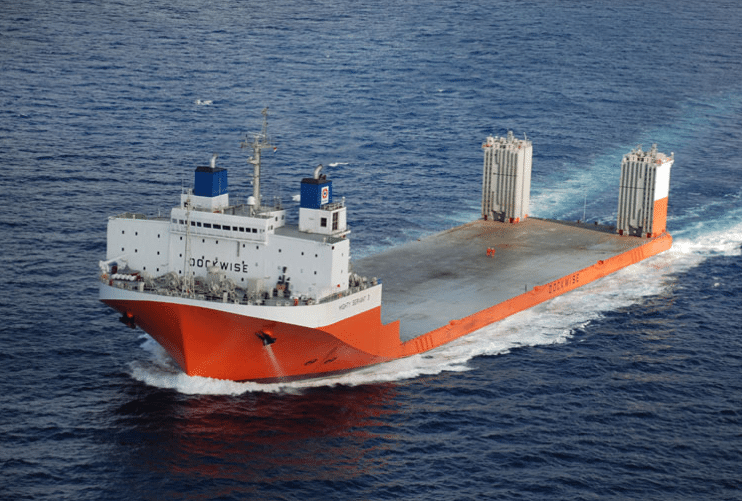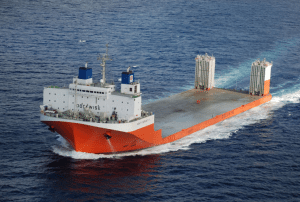Trump Tariffs on Russia’s Oil Buyers Bring Economic, Political Risks
From punishing Brazil to trying to curb imports of fentanyl, U.S. President Donald Trump has wielded the threat of tariffs as an all-purpose foreign policy weapon.

 AMSTERDAM (Dow Jones)–Maritime services provider Dockwise Ltd. (DOCKW.AE) Wednesday threatened to sail under a different flag if the Dutch government won’t allow it to better protect itself against piracy.
AMSTERDAM (Dow Jones)–Maritime services provider Dockwise Ltd. (DOCKW.AE) Wednesday threatened to sail under a different flag if the Dutch government won’t allow it to better protect itself against piracy.
The Bermuda incorporated company, which provides transport services to the offshore, onshore and yachting industries as well as installation services of extremely heavy offshore platforms, wants to be able to hire private security contractors to protect its vessels from hijackings in the Gulf of Aden and the Indian Ocean.
“At this point we are not allowed to protect our employees adequately against pirates, while other nations do allow for added security measures,” Chief Executive Andre Goedee said. Dockwise could be forced to bring its vessels under a different jurisdiction and flag–and regulations–if the Dutch government doesn’t act quickly, he added.
Dutch law currently doesn’t allow for armed private security companies to be contracted.
“Dockwise makes an urgent appeal to the Dutch government to pro-actively seek an effective solution to the problem of vessel protection, including the ability to contract adequate private security,” it said in a statement. “Dutch vessels must be able to offer the same level of security to employees and clients as those vessels that sail under flags of other nations.”
A spokesman for the Dutch ministry of defense said it was studying a possible solution. However, Dockwise said it couldn’t wait for the outcome of a study.
The Indian Ocean waters have become dangerous in the past two to three years. Somalia, a war-torn nation on the horn of Africa, is the seedbed for a flourishing piracy trade. Young men with few prospects set off in skiffs in search of cargo ships and other targets to hijack in exchange for ransoms, often paid by insurance companies.
Current and former naval officers note that the international task forces operating in the Indian Ocean have to cover an area three times the size of the Gulf of Mexico with about 30 ships.
“At present, there are marine ships from countries such as the Netherlands, Sweden, India or Russia patrolling in the Gulf of Aden, but this is by no means enough to cover the growing area in which the pirates operate,” Dockwise spokesman Fons van Lith said.
According to data on the International Maritime Bureau website, Somali pirates have been involved in 139 incidents since the start of the year, including 21 hijackings and the taking of 362 hostages. Currently, there are 26 vessels and 522 hostages held by Somali pirates.
Denmark’s A.P. Moller-Maersk A/S (MAERSK-B.KO), owner of the world’s largest container-shipping company Maersk Line, last month said it had to raise its fees following higher costs stemming from a jump in piracy. Maersk ships are forced to sail faster and longer to prevent hijackings and crews receive doubled salaries as compensation for the added work.
Dockwise, whose shares are listed in Oslo and Amsterdam, said that due to its freight, it is unable to sail at faster speeds.
And Van Lith said that as an oil and gas service provider, Dockwise is vulnerable to pirate attacks as its cargo, such as oil platforms, are expensive. At the same time, Dockwise vessels have low entry points, making them easier for pirates to gain entry.
The company hadn’t yet decided under which flag it would sail if it relinquishes the Dutch flag, said Van Lith.
At 0939 GMT, its shares in Amsterdam traded down EUR0.31, or 1.6%, at EUR18.87.
-By Anna Marij van der Meulen; Dow Jones Newswires

Sign up for gCaptain’s newsletter and never miss an update

Subscribe to gCaptain Daily and stay informed with the latest global maritime and offshore news


Stay informed with the latest maritime and offshore news, delivered daily straight to your inbox
Essential news coupled with the finest maritime content sourced from across the globe.
Sign Up